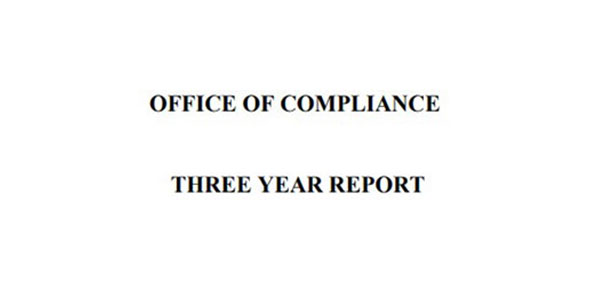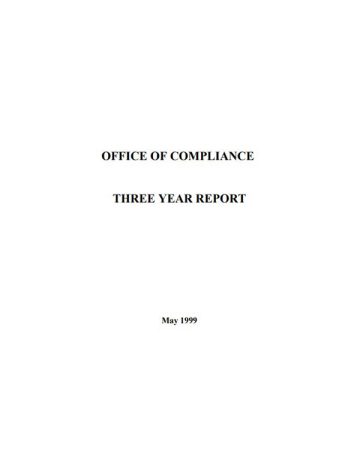OVERVIEW
The passage of the Congressional Accountability Act (CAA or the Act) on January 23, 1995 marked an historic change for the legislative branch. In the words of Senator Grassley, one of the bill’s primary sponsors: No longer would there be “one set of protections for people in the private sector whose employees are protected by the employment, safety and civil rights laws, but no protection, or very little protection, for employees on Capitol Hill.”
The CAA established the Office of Compliance (Office) as a neutral and independent agency within the legislative branch, to administer and enforce the Act, and applied for the first time, the rights and protections of provisions of the following eleven labor and employment laws (the CAA laws) to more than 20,000 congressional employees and employing offices:
- The Fair Labor Standards Act of 1938 (“FLSA”)
- Title VII of the Civil Rights Act of 1964 (“Title VII”)
- The Americans with Disabilities Act of 1990 (“ADA”)
- The Age Discrimination Act of 1967 (“ADEA”)
- The Family and Medical Leave Act of 1993 (“FMLA”)
- The Occupational Safety and Health Act of 1970 (“OSHAct”)
- The Employee Polygraph Protection Act of 1988 (“EPPA”)
- The Worker Adjustment and Retraining Notification Act (“WARN Act”)
- Section 2 of the Uniformed Services Employment and Reemployment Rights Act of 1994 (“USERRA”)
- “Chapter 71″ of title 5, United States Code (Relating to Federal Service Labor Management relations)
- The Rehabilitation Act of 1973
The centerpiece of the CAA is the model alternative dispute resolution (ADR) process–counseling, mediation and adjudicative hearings and appeals – which Congress provided for legislative branch employees. The Office is charged with administering the ADR process and with informing and educating Members of Congress, employing offices, and employees of the legislative branch of their rights and responsibilities under the CAA. Responsibility for the enforcement of the sections of the CAA dealing with unfair labor practices, safety and health, and disability access is lodged with the Office of the General Counsel (OGC). The OGC investigates and prosecutes claims under these sections, and conducts periodic inspections to ensure compliance.

